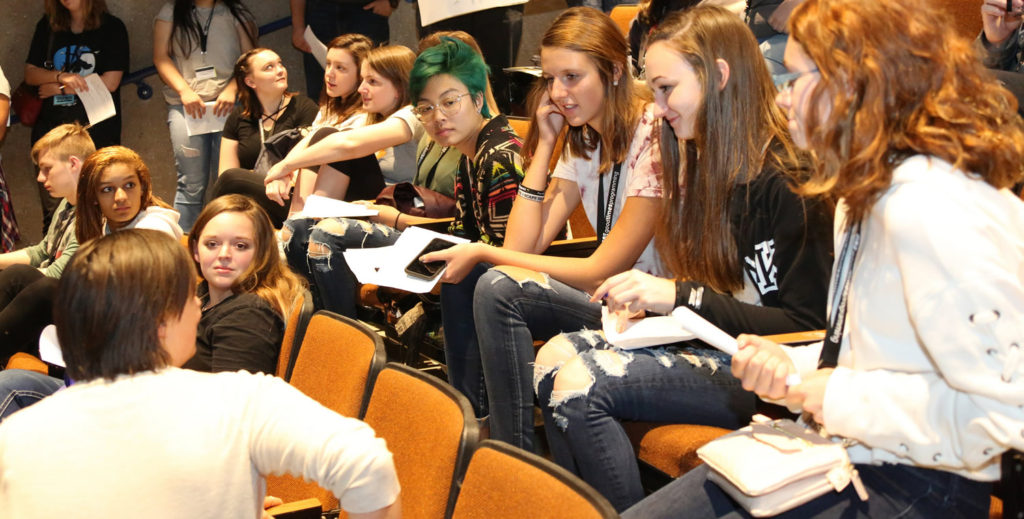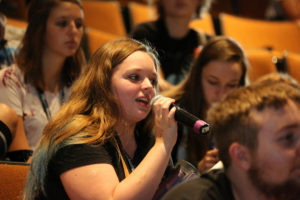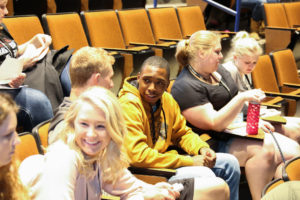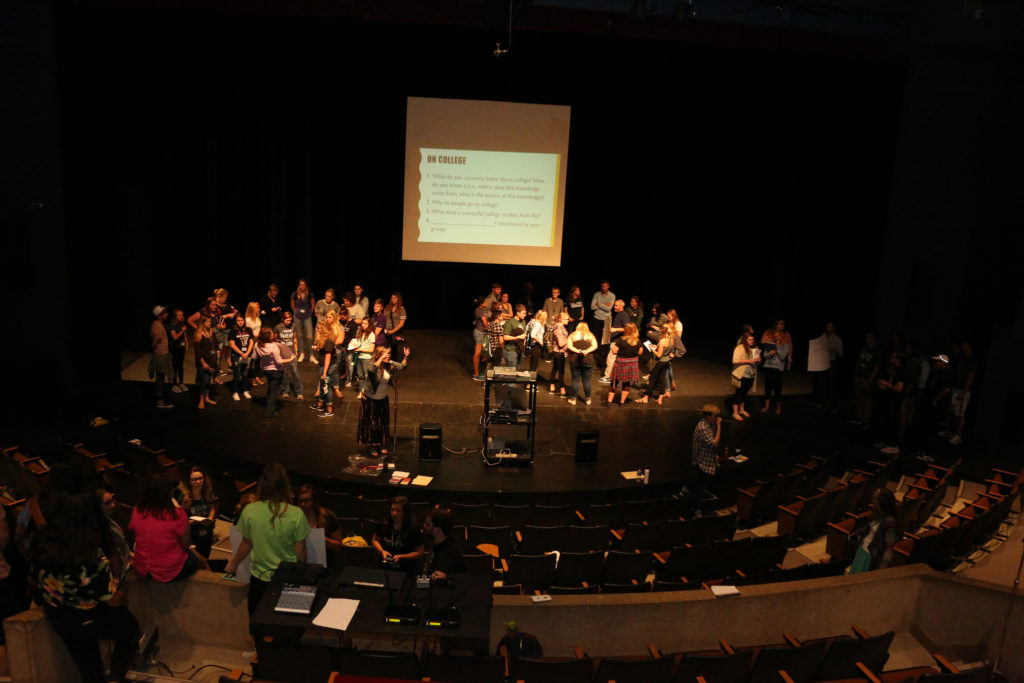
Students participate in a welcome event for the Gateways to Phoenix Success program, a free, high-impact, year-long experience for first-year students that provides the tools and support for college success.
The University of Wisconsin-Green Bay has seen a dramatic expansion of its Gateways to Phoenix Success (GPS) program over the last two years. The program now enrolls 234 students across 10 different GPS sections. This is an increase of more than 100 students since 2015.
The only program of its kind in Wisconsin, GPS is a free, high-impact, year-long experience for first year students that provides the tools and support for college success. GPS students are up to 18 percent more likely to be retained through year four, and are significantly more likely to graduate on time as compared to other underrepresented students. About 70 percent of this year’s cohort comes from a historically underrepresented background — 60 percent are first generation and 39 percent are low income. About 24 percent are students of color.
Students are placed into small teams of up to 25 students. where they work closely with a faculty mentor, peer mentor, and an academic advisor for the entire first year, in courses, advising, and co-curricular and service engagement.
 The goal of GPS is to eliminate gaps in academic achievement, engagement and graduation for these groups. The program does so by focusing on the student as a whole person — helping them become true stakeholders in their educational experiences and building their sense of belonging at UW-Green Bay.
The goal of GPS is to eliminate gaps in academic achievement, engagement and graduation for these groups. The program does so by focusing on the student as a whole person — helping them become true stakeholders in their educational experiences and building their sense of belonging at UW-Green Bay.
Currently, 10 faculty mentors, 10 peer mentors, eight teaching assistants and five academic advisors are providing intensive, individualized support for the GPS students. Almost 14 percent of our GPS students are from Green Bay.
“GPS works because it focuses on helping students become stakeholders in their education, their university and their community, working to build their sense of belonging here,” says Director of Student Success & Engagement and director of GPS, Denise Bartell.
 Bartell says GPS students also explore what it means to be a citizen in the 21st century, how they can make a contribution to their campus and community, and how they can capitalize on their college experience to achieve their personal goals and dreams. For example, each GPS section conducts a service project for their spring capstone experience. Last year’s GPS sections created the Phlash Meals donation program, which provides free dining meals to students in need, donated by faculty and students from their campus dining plans.
Bartell says GPS students also explore what it means to be a citizen in the 21st century, how they can make a contribution to their campus and community, and how they can capitalize on their college experience to achieve their personal goals and dreams. For example, each GPS section conducts a service project for their spring capstone experience. Last year’s GPS sections created the Phlash Meals donation program, which provides free dining meals to students in need, donated by faculty and students from their campus dining plans.
“GPS students are making meaningful and lasting contributions to campus and the community!” Bartell says.
“GPS also works hard to build students’ navigational capital in college,” Bartell said. “In the first weeks of the semester, GPS students are learning how to effectively use the distance learning platform, d2l; the calendaring and e-mail system, Outlook; and the student information system (SIS) which gives them access to their records, fees, grades, courses, academic calendar, etc. They also learn how to access a broad array of campus services, and how to approach college classes to maximize their success. Over the first year GPS students also actively explore career and majors, and develop plans to engage in a diverse array of high impact experiences while in college. As a result, GPS students earn higher GPAs throughout their college career and graduate with stronger resumes and more marketable skills.”
In the photos: GPS students at the “word cloud” activity. Students randomly interviewed faculty and staff about how to get the most of their college experience, and returned to the University Union’s Christie Theatre to “crowdsource” the top 10 themes. Students gathered at themes they found most significant and engaged in discussions about why.
“We will use the data they gathered throughout the year to support their own college success but also to support others in their college goals,” Bartell said. “And so this work is the foundation for an ongoing participatory action research project initiated by GPS. It’s pretty exceptional to get students engaged in research from their first day on campus, but that’s just what we did! And our students are learning critical communication and analytic skills in the process.”

